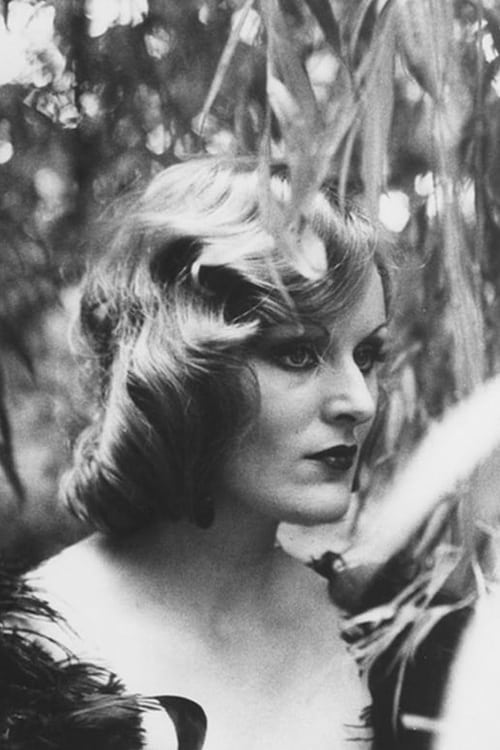Magdalena Montezuma
Birth : 1942-01-01, Würzburg, Germany
Death : 1984-07-15
History
Magdalena Montezuma was born in 1943 in Würzburg, Bavaria, Germany as Erika Kluge. She was an actress, known for The Death of Maria Malibran (1972), Macbeth Oper von Rosa von Praunheim (1971) and The Rose King (1986). She died on July 15, 1984 in Berlin, Germany.
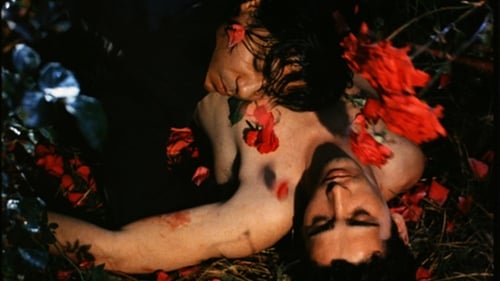
Writer
A mentally unstable woman and her son move to a sprawling mansion in Portugal to grow roses.

Anna, The Mother
A mentally unstable woman and her son move to a sprawling mansion in Portugal to grow roses.
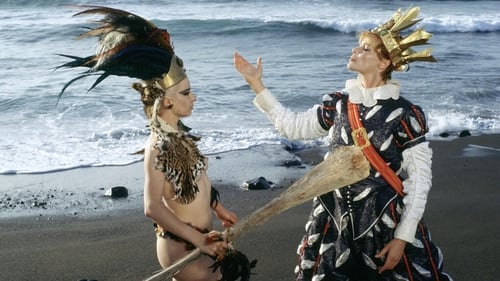
Golem / Norn
Our organization will create a human being whom we can shape and manipulate according to our needs. Dorian Gray: young, rich and handsome. We will make him, seduce him and break him. Ulrike Ottinger, 1984
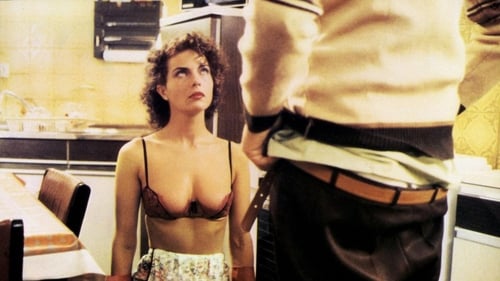
Eva, an upper-class housewife, frustratedly leaves her arrogant husband and decides to enter the call girl business. She lets Yvonne, a prostitute, teach her the basics and both set out for prey together, until Eva starts an affair with Chris, who turns out to be a call boy, as well. Consequently, she moves into his penthouse, large enough for both to offer their services separately.

Doppelzeugin
Oskar Panizza’s The Council of Love (1895) is a blasphemous play set in 1495, during the first recorded outbreak of syphilis, which Panizza satirically presents as the punishment from Satan for sexually active humans. As a result, Panizza was imprisoned for obscenity. Schroeter alternates scenes from the Panizza’s work with a dramatization of his trial, presenting the play as an expressionist spectacle performed by actors wearing exaggerated makeup who gesture and grimace grotesquely. The film thus forms a bridge between Schroeter’s use of tableaux in his early experiments with the political urgency of his 1980s films. On the eve of the AIDS crisis, Schroeter is presciently worried about disease as an excuse for governmental repression and the oppression of sexuality. - Harvard Film Archive

Zigeunerin
A woman experiences psychic disintegration and ends up in a psychiatric hospital.
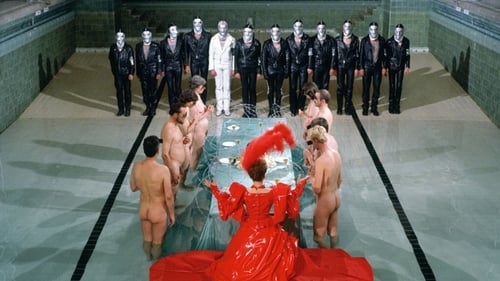
Orlando, als Pilger, Orlando Zyldopa, Orlando Orlanda, Orlando Capricho, Mr. Orlando, The Entertainer Mrs. Orlando
FREAK ORLANDO is divided into five more-or-less distinct sections, all featuring "Freak" Orlando, a woman, played by the late Magdalena Montezuma, who appears in various guises, and deformities, throughout.

Nurse (as Magdalene Montezuma)
Frank Ripploh is a bit of a rascal: he's a bearded and shaggy-haired teacher, and he's gay with a very active sex life and an interest in making films. He keeps his personal life and teaching separate, but he sometimes corrects student papers in public toilets as he waits to score. He cruises constantly, and one evening, he meets Bernd. They become lovers. While Bernd is attentive and caring, Frank gets bored and continues his polymorphously perverse ways. For how long will Bernd and Frank tolerate each other's habits, and for how long can Frank keep his sexual orientation out of the classroom? Things come to a head during Berlin's annual Queen's Ball and the morning after.

Verteidigerin
An impoverished young man from Sicily travels to Wolfsburg, West Germany to find work. He takes a job in the Volkswagen factory after he travels through Northern Italy by train.
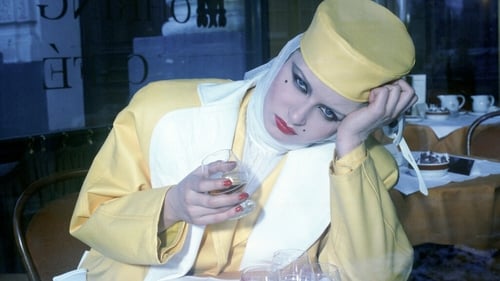
Soziale Frage
A sartorially resplendent woman of few words arrives in Berlin with plans to live out the rest of her days as a drunkard.

Tally Brown, New York is a 1979 documentary film directed, written and produced by Rosa von Praunheim. The film is about the singing and acting career of Tally Brown, a classically trained opera and blues singer who was a star of underground films in New York City and a denizen of its underworld in the late 1960s. In this documentary, Praunheim relies on extensive interviews with Brown, as she recounts her collaboration with Andy Warhol, Taylor Mead and others, as well as her friendships with Holly Woodlawn, and Divine. Brown opens the film with a cover of David Bowie’s “Heroes” and concludes with “Rock ’n’ Roll Suicide.” The film captures not only Tally Brown’s career but also a particular New York milieu in the 1970s.

A German short film

Magdalena, Josette, The Angel of Death
Werner Schroeter's rhapsody of excess leaps from 1949 Cuba to contemporary France to points in between, while its feverishly shifting visual style evokes and parodies everything from kitschy Mexican telenovelas to silent French art films.

With the ascetic grandeur of Carl Th. Dreyer’s The Passion of Joan of Arc, Schroeter evokes the visions of Saint Joan, partly through unused footage of Darling and Caven pantomiming in his 1972 film The Death of Maria Malibran. - MoMA

Two women, one from Boston and one from Germany, flee their empty lives to seek fulfillment in Mexico. The Black Angel is a transitional film; on one hand, it is a companion piece to Willow Springs, featuring two Schroeter regulars as characters far from home and in extremis; on the other hand, it is a film essay about Mexico and as such a harbinger of Schroeter’s nonfiction work to come. While he clearly shares his characters’ fascination with Mexico, the filmmaker also savages touristic exoticism – the otherworldly appearances of his protagonists and their rapturous reactions to new surroundings contrast sharply with the sober perceptions of Mexican history and economics featured in the documentary segments and in the prosaic presence of a non-professional cast of locals. - Harvard Film Archive

Magdalena
Three women retreat to a hacienda in the Mojave Desert and vengefully lure men to their deaths to the siren song of the Andrews Sisters' "Rum And Coca-Cola," in Werner Schroeter's sublimely strange fever dream of a film.
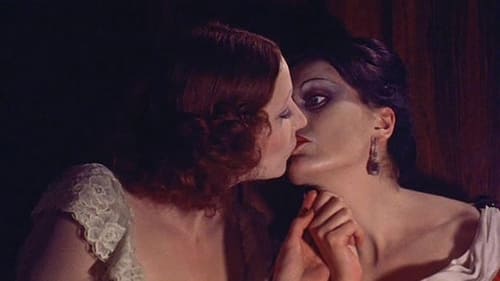
Maria Malibran
Werner Schroeter mixes Stravinsky, Beethoven, Brahms, Maria Callas and Janis Joplin in this delirious biography of the doomed nineteenth-century mezzo-soprano.

Fusing Shakespeare‘s tragedy with the Verdi opera, Schroeter's Macbeth is a fascinating television experiment shot entirely in a studio with several electronic cameras. As Schroeter would recall, "I arranged the Verdi music for a quartet of violin, accordion, piano and oboe, but modeled the rhythms on Argentinian tangos and boleros. The actors sang with horrifying, shrill voices.... The use of video allowed me to produce extraordinary colors.... Of all my films, Macbeth was most unwelcome: Audiences don’t like their Shakespeare to be presented in this way, but I do not differentiate between kitsch and culture...". - MoMA

Collage of dramatic scenes, some exaggerated to comic effect, with asynchronous sound from well known classic, operatic, and rock and roll music – with different approaches to love, suffering, and death.
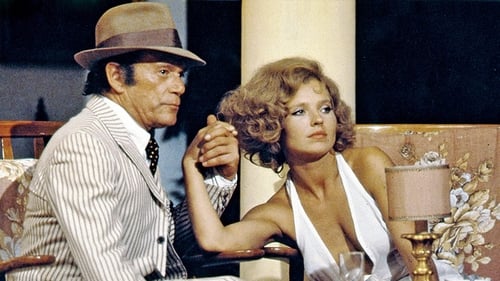
Irm
Tensions between members of a film crew build while they wait for the arrival of the director and star to arrive on location.

Herodes
Schroeter's virtuosic staging of the Oscar Wilde tragedy is a complex montage of image and sound, filmed on the grand steps of Baalbeck, the ancient Roman temple in Lebanon, and interweaving Lebanese and German folk songs with the music of Verdi, Wagner, Strauss, Mozart, Bellini, and Donizetti. Elfi Mikesch, the cinematographer of Schroeter’s later films, designed the film’s sumptuous costumes. A contemporary critic for Le Monde wrote admiringly of Schroeter’s depiction of "the deadly struggle between dark Christian morality and luminous paganism.“
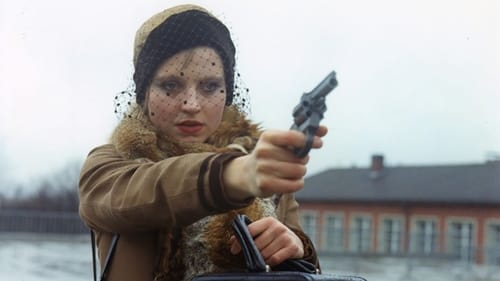
Michel and Guenther, working in dead-end jobs, are obsessed with going to Peru to find buried treasure, using a map of the Rio das Mortes. Michel's girlfriend, Hanna, humors their plan, but really just wants to get married.
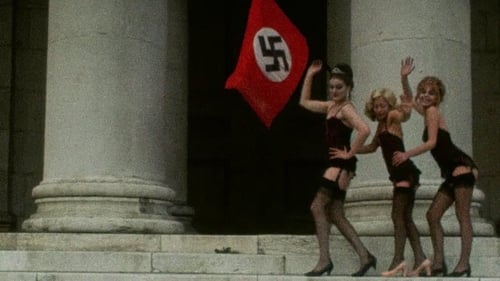
Magdalena
Schroeter’s film is a chronicle of Germany from the Nazi era until the economic boom of the 1950s and 1960s, centering on three women who search for a career as singers and dancers.
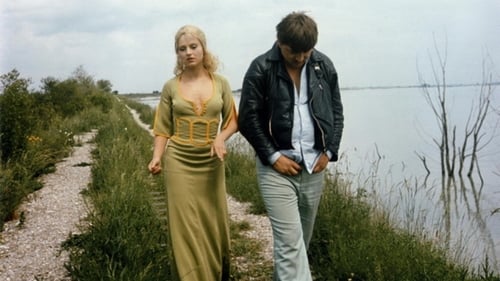
Can a small group of people start a proletarian revolution, asks the "Black Monk" in a leather jacket. The medieval shepherd, Hans Boehm, claims to have been called by the Virgin Mary to create a revolt against the church and the landowners. The "Black Monk" suggests that he would have more success if he dressed up Johanna and had her appear as the Virgin Mary.

Werner Schroeter's stunning split-screen short deals with what the director called "archaic, fundamental themes" of love and mourning.

In a dark and spare theatrical space, four characters use gesture, language, and movement to explore themes of desire and mortality.
